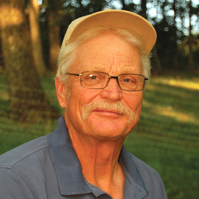By Jim Van Der Pol
Kerkhoven, Minnesota — There is a trendy new “Foodie” culture, of which we are a part. We sell into it. We also never gave up cooking in our house. The Foodies often point out a generational difference in this way:
Your mother or grandmother, they say, might ask you after eating if you got enough, thus linking the provision of food with the concept of food as fuel. Your wife (husband?), lover, or live-in who cooks is more likely to ask if it was good, putting food and eating into the vicinity of sex, where the sensation is at least as important as the result. Foodie culture blames the first comment for all manner of modern ills, such as overeating and the consumption of bad food. And while it admires your grandmother for knowing the uses of a pot, it tut-tuts over her idea of a human as a hole to be filled.
Yesterday, a late-model white pickup pulled onto the yard as I was walking from the shop to the hog house. I watched as a tall, elderly white-haired man disentangled himself from steering wheel and door threshold and made his way over to me with his hand outstretched in greeting. He was dressed in tan cargo shorts, a short sleeve shirt and sandals — a real contrast to my work shoes, long sleeves and wet handkerchief around the neck. He said he was my second cousin, Nelson. He had heard of us and our farm, and had slowly worked out our relationship.
“Your great uncle Jake was my grandfather Jake,” he said. “And my great uncle Albert is your grandfather Albert.” We took Nelson and his wife into the house, got out the picture albums and spent an hour talking about what we knew of the family, including what we had learned about our common ancestor on a trip to Europe in ’07. There, we found the few buildings left of the orphanage in the town of Nijmegen in the Netherlands that once housed 1,600 orphans, mostly children of families who could not keep them fed. Our great grandparents had grown up there, learned trades, met and married, and emigrated from there.
They soon landed near Pipestone in Minnesota, up on the Buffalo Ridge. But, Nelson said, they found it impossibly cold and windy up there and soon moved down to a farm near Edgerton not far away.
“Jake wasn’t much of a farmer,” Nelson commented.
“Your grandfather?” I asked.
“No, old Jake, our great-grandfather.”
I said that old Jake had learned the shoemaker’s trade in Nijmegen, so perhaps wasn’t interested in farming. Nelson said he wasn’t much interested in shoes, either. But every day at about nine o’clock in the morning, one of the sons, Jake or Albert, would need to have a horse hitched to the buggy, ready for their father to drive to town. There he would spend the morning doing a few errands, but mostly arguing the finer points of theology with the other idlers in town. Being of Reformed background, these probably consisted of an analysis of the indications of election by which God would make known to you and your neighbors whether or not you were “chosen.” Old Jake probably picked up at the orphanage that this was how important men spent their lives, and never got beyond it.
Meanwhile, the boys Jake and Albert were back home learning farming first hand. And thus, through Albert and then my father Jake, as well as my mother’s family, the farming line comes down to us here and, by the looks of it, into the future if the grandchildren have their way.
Albert’s farming was an iffy thing — not because of a lack of ability, but because the Depression kept him landless until the final eight years of his farming lifetime. Always on a rented farm, and always on the move, he often had trouble keeping a cow fed and sufficient potatoes on the table. My father, the oldest, filled the gap by spending his entire teenage life pitching manure for one farmer or another and bringing the money home to his family.
When he was allowed to keep his earnings after age 21, my father kept at it until he accumulated a team of mules and a few dollars, and thus felt ready to marry — to the dismay of his parents — the strong-minded, studious German girl he had found. They set out to make a life together on a rented farm.
By the age of 30, he was a little bent-shouldered, a tempered-steel rod of a man with a soft center where his family could dwell. He had lost all his teeth. At six-feet and one inch, he was three inches shorter than his own father. My mother blamed this on not enough to eat and too much work, and she carried to the grave her grudges against the people who had caused it.
So when my mother asked the people she fed whether they had got enough, she wasn’t encouraging obesity, bad food or careless eating, rather speaking from the very core of her life in this world and her understanding of it.
I respect the newfound respect for food, and can even tolerate its more fad-like aspects. I like that it tries to connect the food with the land and the people who produced it. It is quite simply the only game now in opposition to the “food as commodity” and “unlimited corporate opportunity” approaches.
But the food movement has far to go if it is to rise to the level of my mother’s visceral understanding of food. It must make good on its belief that everyone, in the argument of Vandana Shiva and others, is entitled to good food. How it will do that, I confess I cannot quite see.
Jim Van Der Pol grazes and markets from his farm near Kerkhoven, Minnesota.

